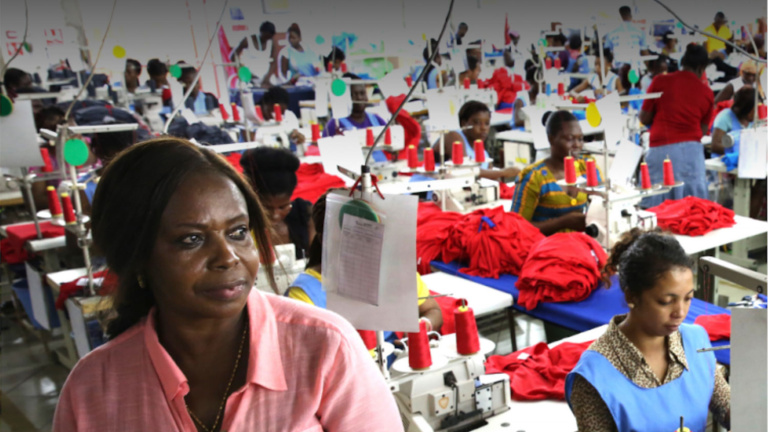
EU leadership to promote responsible business conduct in global value chains
This article zooms in on the role of the EU to promote responsible business conduct in global value chains and particularly focuses on the challenges and opportunities for a coherent and coordinated approach.
The EU has played a key role in developing policies promoting responsible business conduct (RBC) with and beyond EU borders over the last two decades, as illustrated by the Corporate Social Responsibility (CSR) Strategy published by the European Commission. This strategy, originally put in place in 2002 has evolved considerably, particularly in 2011, with the redefinition of CSR – qualified by some as a paradigm shift. From “an approach whereby companies integrate social and environmental concern in their business operation and their interactions with their stakeholders on a voluntary basis”, the definition and wording of CSR was strengthened to become the “responsibility of enterprises for their impacts on societies’. At the same time, the 2011 strategy opened the door for more regulatory measures to complement softer approaches.
Many policies and initiatives related to CSR – now more and more referred to as Responsible Business Conduct (RBC) – have been developed by the EU in this period, in a broad range of policy areas. At the global level, the EU took an active part in supporting the development of international frameworks such as the OECD Guidelines for Multinational Enterprises (reviewed in 2011) and the UN Guiding Principles on Business and Human Rights (2011). At the European level, the Commission uses several channels to foster RBC. Examples of specific policy measures include the EU’s Non-Financial Reporting Directive adopted in 2014, which requires large corporations to disclose information about social and environmental dimensions of their business operations. The 2014 revision of the EU’s Public Procurement Directives allows for the integration of social and environmental considerations in public procurement throughout the EU. The Conflict Minerals Regulation adopted in 2017 will require importers of tin, tantalum and tungsten and gold originating from conflict affected and high risk areas to conduct due diligence in their supply chains as of 2021, to identify and mitigate the risk of financing conflicts or other related illegal practices. Last but not least, the EU supports responsible business practices through its trade and sustainable development chapters in its trade agreements, which promote cooperation on corporate social responsibility and accountability; and development cooperation with several awareness raising and capacity-building programmes and initiatives. And this is far from an exhaustive list.
Such a comprehensive approach requires strong leadership and coordination among EU institutions. This is a major challenge, given that RBC relates to the domains of many Directorates General, including Employment, Social Affairs and Inclusion (EMPL), Internal Market, Industry, Entrepreneurship and SMEs (GROW); International Cooperation and Development (DEVCO), Justice and Consumers (JUST); and Trade (TRADE). In a context where the Commission will intensify its work on RBC, different stakeholders, including the European Parliament, some EU Member States, CSOs and even some businesses have argued that a more coherent EU approach to promote responsible business conduct is now required, in the form of an EU Action Plan on Responsible Business Conduct. This Action Plan would hence succeed the 2011 CSR strategy that covered the period 2011-2014 and allow for more visibility on the RBC agenda, while potentially fostering institutional coordination.
The European Commission on the other hand argues that promoting RBC is integrated in the EU’s approach to the 2030 Sustainable Development Agenda – RBC being a key factor for achieving many of the SDGs. As such, the 2030 Agenda can push the RBC agenda at EU level and beyond, and some expect the First Vice-President, who is responsible for Better Regulation, Interinstitutional Relations, the Rule of Law and the Charter of Fundamental Rights, to step up to take up this role, given his mandate to coordinate the Commission’s work to implement the 2030 Agenda (while GROW coordinated the EU’s CSR strategies). At the same time, integrating RBC in the EU’s approach to the 2030 Agenda rather than developing and implementing a specific RBC Action Plan, risks to dilute rather than push the RBC agenda.
Even for sceptics of EU action on RBC, including companies, there is an increasing rationale for such a coherent and coordinated approach, given the proliferation of RBC instruments at national level. For example, different models for legally binding due diligence requirements at national level are emerging, such as the Modern Slavery Act in the UK and the Loi de la Vigilance in France, and other EU Member States considering due diligence legislation. In others, specific models for voluntary multi-stakeholder collaboration at sectoral level to promote RBC exist, such as the Dutch Agreement on Sustainable Garments and Textile and the German Partnership for Sustainable Textiles. This fragmentation creates an uneven playing field, as companies in different EU member states have to abide by different due diligence requirements and/or different multi-stakeholder procedures and targets. Furthermore, it creates large administrative burdens for EU companies operating in more than one EU Member State. If full harmonisation at EU level is politically impossible, then at least facilitating dialogue, exchanging experiences and sharing lessons learned at the EU-level makes sense.
Hence, for a more ambitious and coherent approach to RBC to materialise, Member States, the European Parliament and its voters, knowledge institutes, NGOs and companies need to press the Commission to take up this leadership. Only then can much needed RBC champions within the Commission, at different levels, emerge and flourish.
About the authors
Jeske van Seters, Head of Private Sector Engagement, ECDPM
Karim Karaki, Policy Officer, ECDPM
Read the full magazine issue









